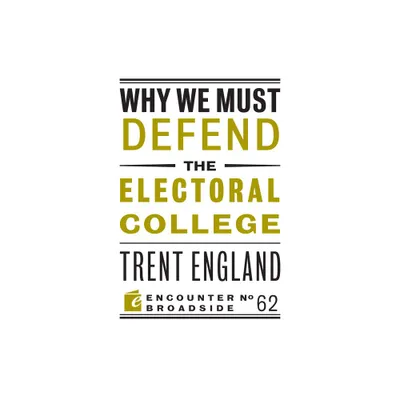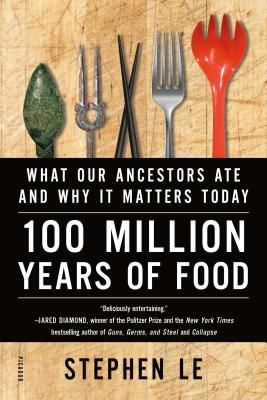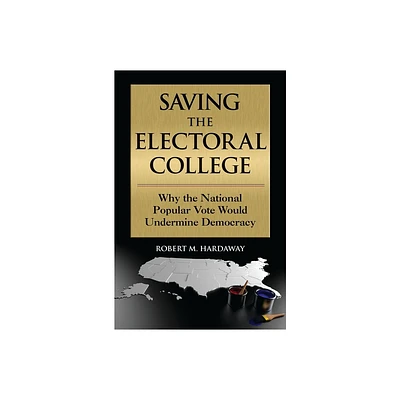Home
Distorting Democracy: the Forgotten History of Electoral College-and Why It Matters Today
Loading Inventory...
Barnes and Noble
Distorting Democracy: the Forgotten History of Electoral College-and Why It Matters Today
Current price: $21.95


Barnes and Noble
Distorting Democracy: the Forgotten History of Electoral College-and Why It Matters Today
Current price: $21.95
Loading Inventory...
Size: Paperback
*Product Information may vary - to confirm product availability, pricing, and additional information please contact Barnes and Noble
The complicated history of how America elects presidents and why this matters to the next election
An engaging mix of history and political science
, Distorting Democracy
will awaken Americans to the perils of our system by unveiling the Electoral College’s origins, history, and current problems. This book demonstrates that the system has no principled foundation, that it has changed dramatically over its 230–year history, and that it now threatens the legitimacy of our political system.
The book is divided into three ground-breaking sections:
Part I
tells the story of the Electoral College’s origins in the Constitutional Convention. Defenders of the Electoral College tend to invoke gauzy images of the Founding Fathers infusing our system with their unique, timeless wisdom. But history tells a very different story. The Founding Fathers faced a mess; they responded by creating a mess.
Part II
traces two hundred years of innovations—many of them subtle but highly consequential—to the plan described in the Constitution. As the new nation rapidly descended into bitter political conflict, many of the framers themselves, driven by their partisan interests, massaged the Electoral College into a form that differed profoundly from their founding intentions. Subsequent generations tinkered similarly with the systems’ possibilities, always exploiting its potential for political gain.
Part III
examines how our strange presidential election system has produced frustrating results with increasing frequency in recent elections. Who can forget the Bush-Gore contest of 2000, when the results hinged on “hanging chads” and fewer than 1,500 votes in Florida? Americans endured weeks of a single-state recount, only to have the Supreme Court halt the process and hand the election to George W. Bush. Bush won the Electoral College by a single vote, but Al Gore captured 500,000 more popular votes. Then, in 2016, Donald Trump stunned the world with a substantial Electoral College victory of 302-227, though nearly 3 million more Americans preferred his opponent, and roughly 7 million voted for a third-party candidate.The system increasingly returns results that conflict with the expressed wishes of a majority of voters, a product of our hyper-polarized landscape and unique geopolitical distribution of party loyalists.
The system cannot improve until we learn the complicated history of the Electoral College and the lessons it holds for us today.
"
Every American should read this book.
It brings facts and clarity to a debate that too often relies on conjecture about the Electoral College’s purposes and ill-informed arguments about how it actually operates.
The lessons herein are immense.
" Joshua A. Douglas, Ashland, Inc-Spears Distinguished Research Professor of Law, University of Kentucky
An engaging mix of history and political science
, Distorting Democracy
will awaken Americans to the perils of our system by unveiling the Electoral College’s origins, history, and current problems. This book demonstrates that the system has no principled foundation, that it has changed dramatically over its 230–year history, and that it now threatens the legitimacy of our political system.
The book is divided into three ground-breaking sections:
Part I
tells the story of the Electoral College’s origins in the Constitutional Convention. Defenders of the Electoral College tend to invoke gauzy images of the Founding Fathers infusing our system with their unique, timeless wisdom. But history tells a very different story. The Founding Fathers faced a mess; they responded by creating a mess.
Part II
traces two hundred years of innovations—many of them subtle but highly consequential—to the plan described in the Constitution. As the new nation rapidly descended into bitter political conflict, many of the framers themselves, driven by their partisan interests, massaged the Electoral College into a form that differed profoundly from their founding intentions. Subsequent generations tinkered similarly with the systems’ possibilities, always exploiting its potential for political gain.
Part III
examines how our strange presidential election system has produced frustrating results with increasing frequency in recent elections. Who can forget the Bush-Gore contest of 2000, when the results hinged on “hanging chads” and fewer than 1,500 votes in Florida? Americans endured weeks of a single-state recount, only to have the Supreme Court halt the process and hand the election to George W. Bush. Bush won the Electoral College by a single vote, but Al Gore captured 500,000 more popular votes. Then, in 2016, Donald Trump stunned the world with a substantial Electoral College victory of 302-227, though nearly 3 million more Americans preferred his opponent, and roughly 7 million voted for a third-party candidate.The system increasingly returns results that conflict with the expressed wishes of a majority of voters, a product of our hyper-polarized landscape and unique geopolitical distribution of party loyalists.
The system cannot improve until we learn the complicated history of the Electoral College and the lessons it holds for us today.
"
Every American should read this book.
It brings facts and clarity to a debate that too often relies on conjecture about the Electoral College’s purposes and ill-informed arguments about how it actually operates.
The lessons herein are immense.
" Joshua A. Douglas, Ashland, Inc-Spears Distinguished Research Professor of Law, University of Kentucky


















